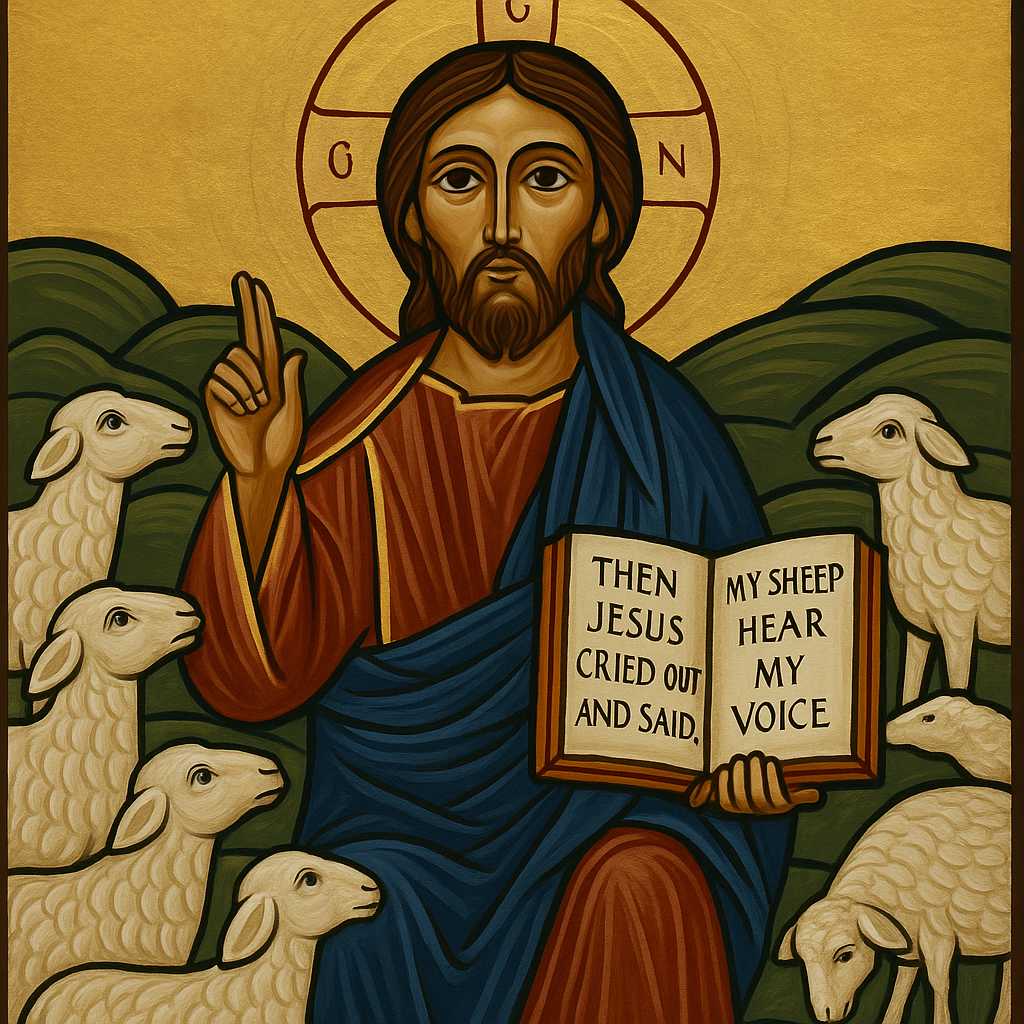His Cry, Our Call: To Believe, To See, To Walk in the Light
Gospel Reading: John 12:44–48 (NKJV)
“Then Jesus cried out and said, ‘He who believes in Me, believes not in Me but in Him who sent Me. And he who sees Me sees Him who sent Me… I have come as a light into the world, that whoever believes in Me should not abide in darkness… the word that I have spoken will judge him in the last day.’”
In the Name of the Father, and the Son, and the Holy Spirit, One God. Amen.
May the blessing of the Father who calls us and His Only Begotten Son Jesus Christ who saves us, and the Holy Spirit who sanctifies and transforms us be with us all, that we may hear His word and bear fruit—thirty, sixty, and a hundredfold. Amen.
A Cry from the Heart of God
Our Lord did not whisper these words. He cried out.
This was not the cry of anger, but the loving shout of a Shepherd calling back His scattered sheep. It was the voice of a Savior reaching out to hearts drowning in fear, hiding their faith, and afraid to be seen.
And what does He cry?
“He who believes in Me, believes not in Me but in Him who sent Me.”
Here, Christ draws us into the mystery of divine unity. To believe in Him is to believe in the Father. To see Him is to see the One who sent Him.
Why shout such words? Because silence would not reach the souls tormented by fear—especially those who believed inwardly but were too afraid to confess Him publicly. He was calling out to those whose faith was locked behind walls of anxiety, shame, or fear of rejection.
In our own lives, how often do we hide what we believe because of fear? We don’t speak, we don’t act, we stay in the background. We believe—but quietly. And Christ, in love, cries out still today, not to condemn, but to call us out of our hiding places.
Light for Those in the Dark
Jesus says, “I have come as a light into the world, that whoever believes in Me should not abide in darkness.”
He does not merely say, “I bring light”—He is the light.
What is this darkness He speaks of? It is not just sin—it is also confusion, anxiety, fear, and hopelessness.
Many today—especially our youth and families—live under a cloud of hidden darkness: mental exhaustion, emotional numbness, silent depression, and spiritual disconnection.
But His light is not harsh or judgmental—it is gentle and revealing. It does not shame, but heals. It helps us see what is really there: the truth about ourselves, our pain, and our need for Him.
In the early Church, St. Cyril said, Christ reveals Himself as the “true Light,” not only to prove His divinity but to fulfill what was foretold:
“Shine, shine, O Jerusalem! For your light has come, and the glory of the Lord is risen upon you.” (Isaiah 60:1 LXX)
“Send out Your light and Your truth.” (Psalm 43:3)
Let this truth be known: there is no healing without the light.
But in His light, healing begins.
From Hiding to Healing
Many people suffer in silence. Like those in the Gospel, they believe—but hide.
They struggle with fears of being misunderstood, judged, or rejected.
Mental health challenges like social anxiety, trauma, or depression can make public faith feel impossible. Christ does not condemn such weakness—He speaks to it directly. His cry is not a command to perform but an invitation to come.
He speaks into the fear and calls it out—not to shame, but to save.
Sometimes, we need help hearing His voice—through Scripture, through spiritual guidance, Coptic community support, and through Christian counseling. There is no shame in needing support. What matters is this: do not stay in the dark. Christ has come so you may have light.
Practical Practice: A Prayer Before Speaking
Before you speak or act today, especially when tempted to remain silent in fear, pause and say:
“Lord Jesus, You cried out to reach me. Help me now to reflect Your light, not my fear. Amen.”
Then take one brave step—say the word, show the kindness, or share the truth that you would normally hide.
Words That Heal or Words That Judge
Christ says, “The word that I have spoken will judge him in the last day.”
Not because He desires condemnation—but because His words were meant for salvation. The same word that could have healed will testify if we reject it.
As St. Cyril notes, Christ came not to condemn but to save. But refusal to accept His word becomes self-condemnation. Like a medicine offered but not taken—it is not the medicine that kills, but the refusal to take it.
Let us not wait until “the last day” to take His word seriously.
Let it judge us now—but as a loving physician, not a harsh critic.
Final Encouragement
Jesus still cries out. He still calls you out of the shadow of silent belief and into the light of bold love.
If your faith has grown quiet—He calls.
If you are tired of hiding—He calls.
If fear has a grip on your heart—He calls.
Do not stay in the dark. The light has come.
And His cry is not one of judgment… it is the cry of a Shepherd calling His sheep back home.
May the Lord bless us, transform our hearts and minds, that our homes may stand on the Rock, our hands serve in the harvest, and our hearts long for Heaven. Amen.

